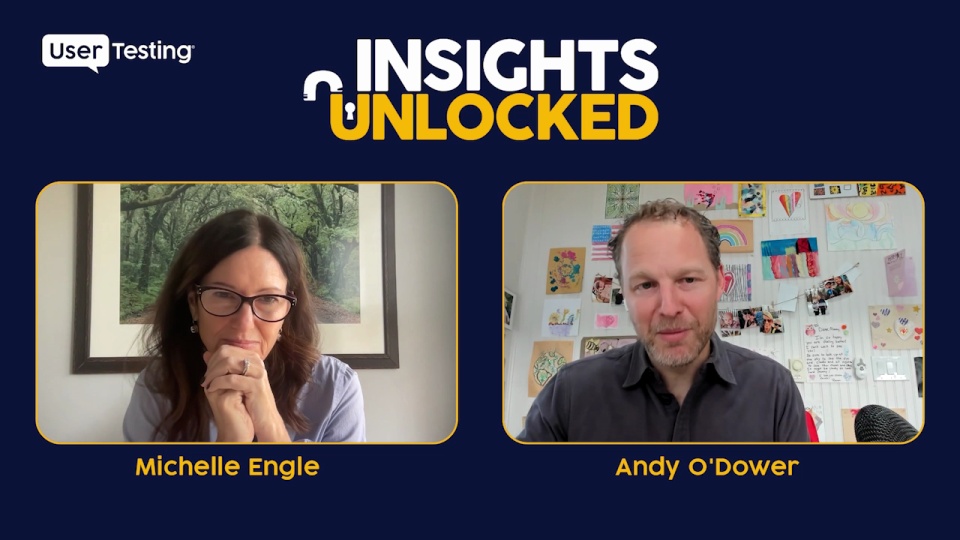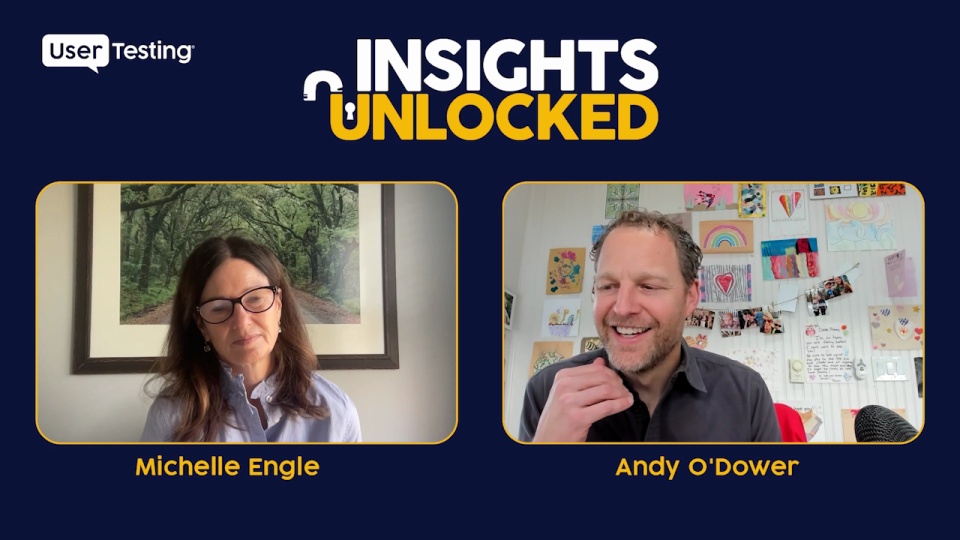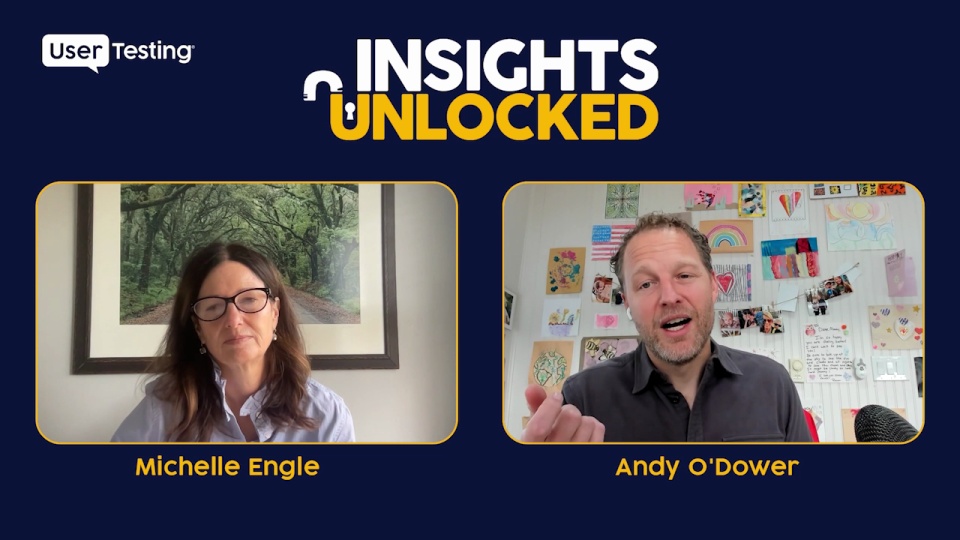
Episode 156 | February 03, 2025
How Twilio is transforming customer communication with AI
Learn how Twilio uses AI and conversational tools to revolutionize customer communication, improve engagement, and ensure trust and privacy.
How Conversational AI is Transforming Customer Communication
Imagine never having to endure another frustrating "press 1 for this, press 2 for that" customer support call. Thanks to advancements in conversational AI, that reality is quickly becoming the norm. Twilio, a leading customer communication platform, is at the forefront of this transformation, reshaping how businesses connect with their customers.
In a recent episode of the Insights Unlocked podcast, Andy O’Dower, Vice President of Product Management at Twilio, revealed how conversational AI and other cutting-edge tools are revolutionizing customer engagement. From automating routine tasks to creating personalized, empathetic experiences, Twilio’s technology is redefining what’s possible in the world of customer communication.
The rise of conversational AI in customer support
At its core, conversational AI leverages natural language processing and machine learning to simulate human-like conversations. Unlike traditional interactive voice response (IVR) systems, which require customers to navigate complex menus, AI-powered virtual agents can understand and respond to customer queries in real time.
“Timing is everything,” Andy explained. “The technology has caught up with brands’ ambitions, and now we’re seeing AI truly transform customer interactions.”

Twilio’s approach to conversational AI focuses on enhancing both efficiency and empathy. By combining AI tools with rich customer data, Twilio enables businesses to deliver hyper-personalized experiences across channels like voice, messaging, and video.
“We’re moving to a world where these agents aren’t just efficient—they’re the new face of your brand.” – Andy O’Dower
How Twilio is using AI to enhance communication
Twilio’s customer communication platform is designed to make complex systems simple for developers while delivering seamless, scalable solutions for businesses.
Andy highlighted several ways Twilio uses AI to improve customer communication:
- Real-time transcription and sentiment analysis: Twilio’s tools can analyze voice interactions, providing insights into customer needs and emotions.
- Automating routine tasks: Virtual agents can handle repetitive queries, allowing human agents to focus on more complex issues.
- Personalized experiences: By leveraging data from Twilio’s platform, businesses can ensure every interaction feels tailored to the individual.
“Think about a scenario where a customer calls in, and the agent—whether human or virtual—already knows who they are, their purchase history, and even the problem they’re trying to solve,” Andy said. “That’s the power of AI-driven contextual data.”
“You want that agent that knows the most about you, understands your needs, and can resolve issues quickly.” – Andy O’Dower
Why trust and privacy are non-negotiable
As AI becomes increasingly central to customer communication, trust and privacy have emerged as critical priorities. Twilio takes a “privacy by design” approach, ensuring that all products are built with strong privacy and security measures from the ground up.
“It takes years to build trust and just one moment to erode it,” Andy said.

To enhance transparency, Twilio has introduced initiatives like AI "nutrition labels," which provide customers with details about the models and data powering their AI solutions. This level of openness not only builds trust but also helps businesses feel confident in deploying AI tools, he said.
“Trust and privacy are the foundation of any successful AI-driven communication system.” – Andy O’Dower

The future of customer engagement: autonomous agents
One of the most exciting developments in customer communication is the rise of autonomous agents. These AI-powered tools can handle tasks ranging from processing refunds to answering complex product questions, all without human intervention.
Andy explained that Twilio’s platform enables businesses to create autonomous agents that are not only efficient but also deeply personalized. By integrating customer data, these agents can anticipate needs, provide relevant solutions, and deliver a frictionless customer experience.

“We’re seeing autonomous agents become the new face of customer engagement,” he said. “They’re not just handling tasks—they’re representing your brand in a way that feels human and empathetic.”
How businesses can prepare for the AI revolution
For organizations looking to adopt conversational AI and other advanced communication tools, Andy offered several recommendations:
- Start with trust: Prioritize privacy and security when integrating AI solutions. Ensure customers feel confident that their data is being handled responsibly.
- Leverage data effectively: Use contextual data to make AI-powered interactions more personalized and impactful.
- Experiment and iterate: The world of AI is evolving rapidly, so it’s essential to test new tools, analyze results, and continuously improve.
“AI is unlocking what’s possible, but trust is what makes it work.” – Andy O’Dower
Final thoughts
As technology continues to evolve, the potential for conversational AI to transform customer communication is virtually limitless. From automating routine tasks to creating deeply personalized customer experiences, AI is helping businesses build stronger relationships with their customers while improving efficiency.
“At Twilio, our mission is to make communication simple, trusted, and smart,” O’Dower concluded. “AI is the key to achieving that vision, but it all starts with trust and a commitment to delivering meaningful experiences.”
Episode links:
- Twilio’s website
- Twilio Docs: Twilio's developer documentation
- Andy O'Dower on LinkedIn
- How generative AI chatbots are transforming customer experience: This report delves into the adoption and impact of AI chatbots in business settings, highlighting their role in enhancing customer interactions.
- Transforming customer experience with responsible AI strategy: This podcast episode discusses the integration of AI in customer experience research, focusing on automating tasks and enhancing insights while maintaining human oversight.
- Generative AI: hype or the future of customer experience?: This podcast episode explores the role of generative AI in customer experience and how companies should approach its integration into their strategies.
- UserTesting AI: An overview of UserTesting's AI-powered capabilities designed to accelerate various aspects of experience research, from recruitment to analysis.
- How to test AI experiences: A practical guide on evaluating AI user experiences and product design, emphasizing trust, transparency, and data privacy.










